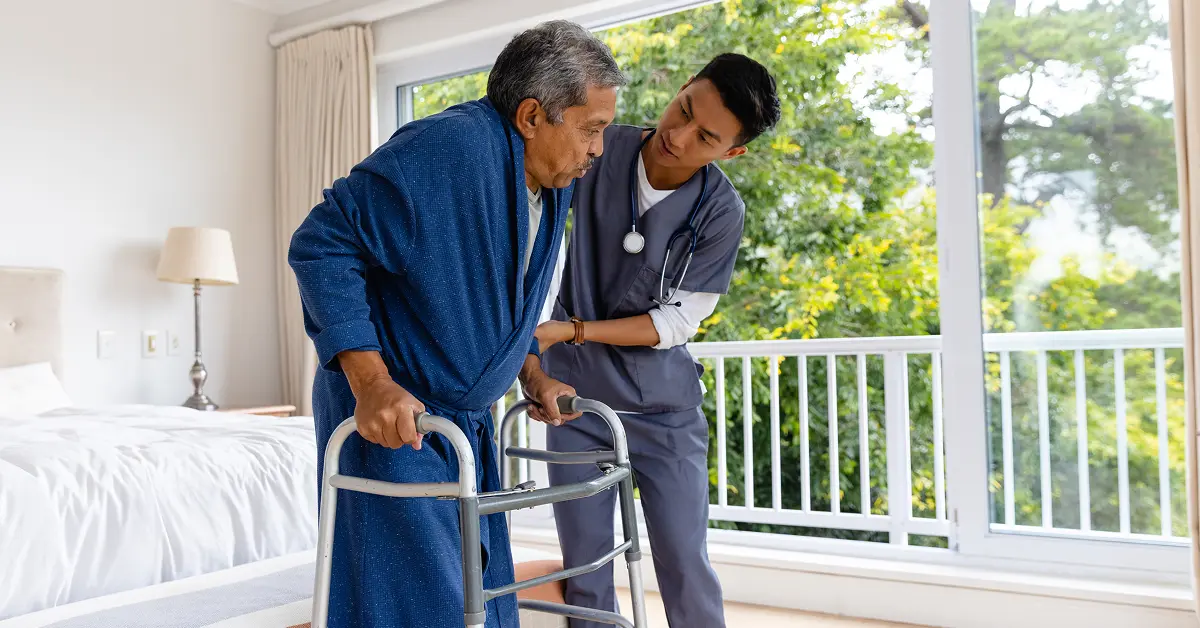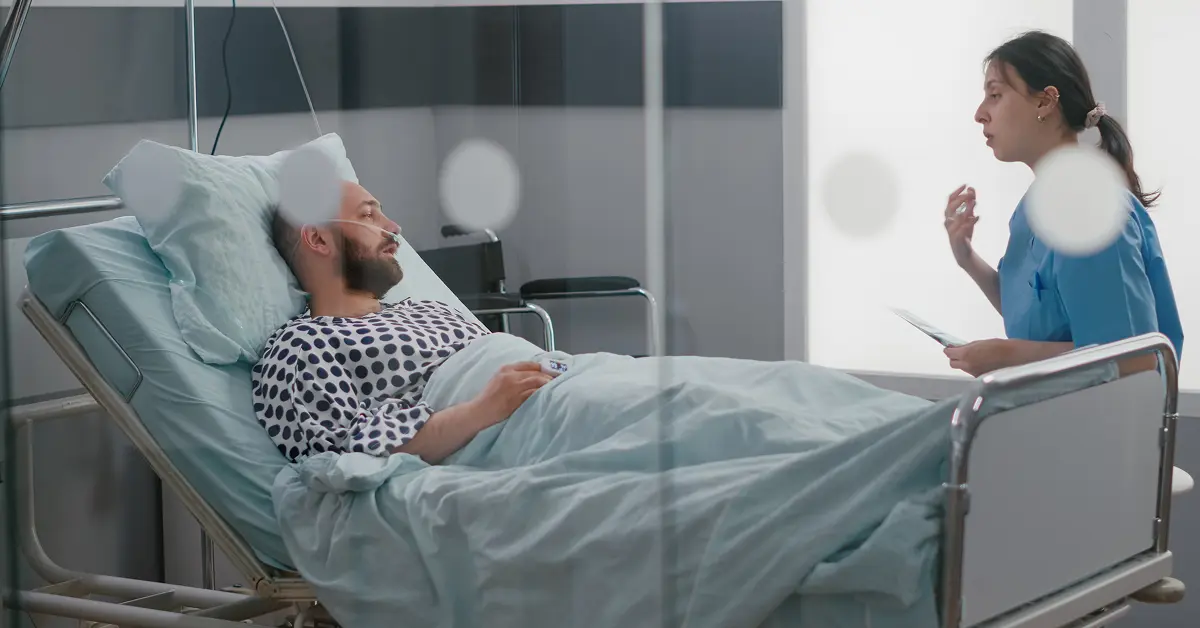After being discharged from the hospital, recovery continues at home — a critical stage that requires proper planning, attention, and care. Whether it’s after surgery, an illness, or a long hospital stay, post-discharge home care ensures that patients heal comfortably and safely in a familiar environment. For families in India, especially those searching for “post-discharge home care near me”, here are some practical tips to make the transition smooth and stress-free.
Understand the Discharge Instructions Clearly
Before leaving the hospital, ensure you fully understand the discharge summary provided by the doctor or nurse. This document includes details about medications, diet, physical activity, wound care, and follow-up appointments. Clarify any doubts — especially regarding medication schedules, dosages, and potential side effects. Having a clear understanding helps you manage the patient’s recovery confidently and avoid complications once at home.
Prepare the Home for the Patient’s Arrival
Transforming your home into a comfortable recovery space is essential. Start by setting up a clean, quiet, and accessible area for the patient. Remove clutter and obstacles to prevent falls, particularly if the patient has limited mobility. Place essential items such as water, medicines, tissues, and a bell or mobile phone within easy reach. For post-surgical or elderly patients, consider renting a hospital bed or installing support rails in the bathroom for added safety.
Arrange for Professional Home Care Assistance
Hiring trained caregivers, nurses, or attendants can significantly ease the recovery process. These professionals provide skilled care, such as wound dressing, medication administration, physiotherapy assistance, and mobility support. Many reliable home care agencies in India offer customized services based on the patient’s needs. Search for “home care services near me” to find certified and experienced caregivers in your locality who can ensure medical safety and emotional comfort.
Follow the Medication and Diet Plan Strictly
Post-discharge recovery largely depends on adhering to prescribed medicines and a proper diet. Create a medication chart with times and dosages clearly marked. This helps avoid confusion, especially when multiple drugs are involved. Also, follow the doctor’s recommended diet plan — whether it’s protein-rich food for wound healing or light, digestible meals for post-surgery recovery. Always consult the physician before introducing any supplements or over-the-counter medicines.
Keep Track of Vital Signs and Symptoms
Monitoring vital signs such as blood pressure, temperature, blood sugar, and oxygen levels is important, especially for patients recovering from surgery, stroke, or chronic illness. Keep a logbook or use a mobile app to record readings daily. If any abnormal symptoms appear — such as fever, swelling, pain, or shortness of breath — contact the doctor immediately. Early intervention can prevent serious complications.
Schedule Regular Follow-Ups and Home Visits
Routine check-ups are an integral part of post-Hospital Discharge . Ensure the patient attends all scheduled doctor appointments, whether online or in-person. In India, many hospitals and clinics now offer home visit doctors and teleconsultations for convenience. These follow-ups allow the medical team to assess the patient’s progress, adjust medications if needed, and address any emerging concerns.
Encourage Mobility and Physiotherapy
Depending on the patient’s condition, gradual movement and light exercises can promote faster recovery. If the doctor recommends physiotherapy, hire a licensed home physiotherapist. They can design a personalized exercise plan to restore strength, balance, and flexibility. Regular movement also prevents complications like bedsores, stiffness, and blood clots.
Maintain Hygiene and Infection Control
Cleanliness plays a major role in preventing infections, particularly after surgeries. Wash hands before and after attending to the patient, sanitize medical equipment regularly, and keep the surroundings dust-free. Change bed linens frequently and disinfect commonly touched surfaces like doorknobs and switches. For patients with wounds or catheters, follow strict hygiene practices as advised by healthcare professionals.
Provide Emotional and Mental Support
Recovery is not only physical but also emotional. Many patients feel anxious, weak, or dependent after returning home. Family members should offer constant encouragement, companionship, and reassurance. Engage the patient in light conversations or hobbies they enjoy. If the patient shows signs of depression or withdrawal, consider consulting a counselor or mental health professional. Emotional support can speed up healing and improve overall well-being.
Stay Connected with the Healthcare Team
Maintain open communication with doctors, nurses, and therapists. In case of any changes in symptoms or unexpected issues, reach out to them without delay. Many healthcare facilities in India now provide 24/7 helplines for home care patients. Staying connected ensures that professional guidance is available whenever needed, reducing the risk of emergency hospital readmissions.
Make Use of Home Care Technology
Technology can simplify post-discharge care. Devices such as digital thermometers, blood pressure monitors, and glucose meters help track health parameters efficiently. Additionally, mobile apps can remind patients of medication timings and doctor appointments. Some home care agencies also offer remote monitoring systems that alert caregivers and doctors about health changes in real time.
Plan for Emergencies
Always be prepared for unexpected situations. Keep emergency contact numbers — including the doctor, ambulance service, and nearby hospital — handy. Store important medical documents and prescriptions in an accessible place. Having a clear emergency plan ensures you can act quickly if the patient’s condition changes suddenly.
Balance Rest and Routine
While rest is essential, sticking to a daily routine helps patients regain normalcy. Encourage a fixed sleep schedule, healthy eating habits, and light activities at regular times. Avoid overexertion but ensure the patient remains mentally engaged and physically active within safe limits.
Conclusion
Post-discharge home care is a vital phase in a patient’s recovery journey. With proper planning, professional support, and a caring environment, you can ensure your loved one heals safely and comfortably at home. Whether you’re in Delhi, Mumbai, Chennai, or any other city, searching for “post-discharge home care near me” will help you find trusted local caregivers and services tailored to your needs. Remember, compassionate care and consistent attention are the keys to a smooth recovery and long-term well-being.
Contents
- Understand the Discharge Instructions Clearly
- Prepare the Home for the Patient’s Arrival
- Arrange for Professional Home Care Assistance
- Follow the Medication and Diet Plan Strictly
- Keep Track of Vital Signs and Symptoms
- Schedule Regular Follow-Ups and Home Visits
- Encourage Mobility and Physiotherapy
- Maintain Hygiene and Infection Control
- Provide Emotional and Mental Support
- Stay Connected with the Healthcare Team
- Make Use of Home Care Technology
- Plan for Emergencies
- Balance Rest and Routine
- Conclusion
Our 24*7 services
Latest Posts
- What Is Respite Care and Why Is It Important
- Affordable home care for senior citizens in India
- Caring for Seniors with Dementia or Alzheimer's at Home
- Senior Caregiving A Guide for Every Family
- How to Write a Caregiver Resume That Gets You Hired
- How Care After Hospital Discharge Speeds Up Recovery at Home
- How to Get Home Health Care for Seniors Through Medicare
- What Does a Senior Citizen Caregiver Really Do at Home
- How to Care for Elderly Parents with Alzheimer’s or Dementia
- How to Get 24-Hour Care for Seniors at Home



